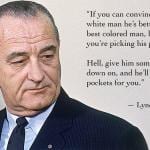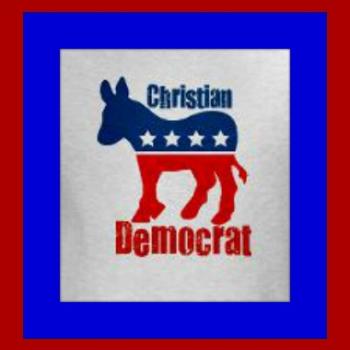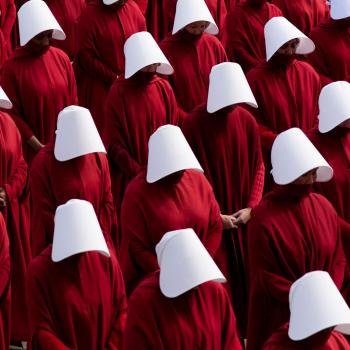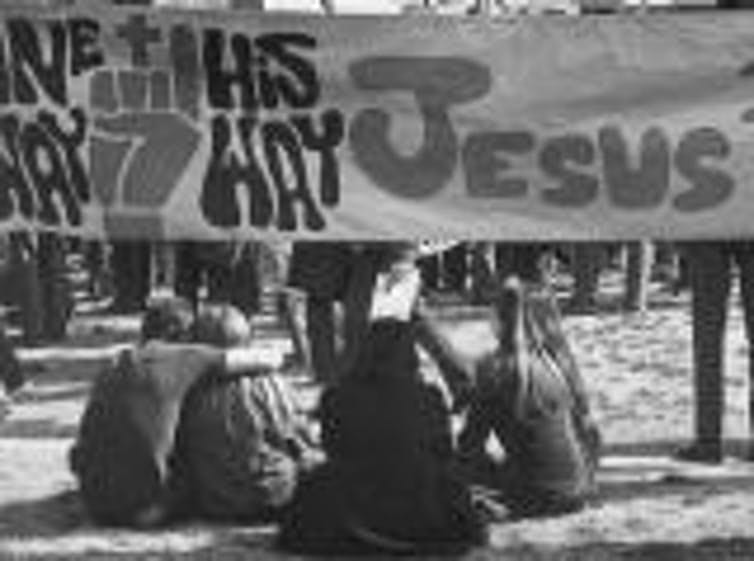
Some of my earliest memories are set in the small town church in which I grew up. Like most small town churches, ours was pretty conservative. I don’t remember a lot of politically divisive messages delivered from our pulpit but, as I think back, all the trimmings of political conservatism were present if you were paying attention. My parents were pillars of the church and community at large; respected educators and stalwart church members. My mom was a regular on the church stage as a singer of solos, duets, and such. My dad served on the board of trustees. For decades, both my parents served as the leaders for a very active youth group. They were unpaid volunteers who put in countless hours of work with hundreds of youth over the years. If our church had a hall of fame, my parents would have been first ballot inductees. But they had a secret (ok, it wasn’t really a secret, but it was not a publicized fact), they were Democrats. I’m sure there were probably other Democrats in the congregation (my mom’s parents, for example), but they were very few and far between and those who were Democrats certainly didn’t talk politics with their church friends. That was just the way it was then, and I’m afraid that very little has changed in the decades since.
Sometimes it felt like that church was my second home. I was certainly there more than most kids. I remember spending hours exploring the inner reaches of the building, all the nooks and crannies, as if I was in some undiscovered cave system while my parents were at choir practice, at some meeting, leading a youth group, or some such activity I was too young to attend. I knew that old building like the back of my hand. This was during the final years of the Vietnam War in the early seventies when I was in my early elementary school years. I was too young to follow or understand all the controversy and division that the war was causing. Little kids in small towns like mine were mostly sheltered from those harsh realities. But I do remember understanding that there were a lot of teens and young adults who seemed somehow “different.” I remember hearing people call them “hippies.”
Although my parents weren’t hippies, they did relate to a lot of the hippie movement’s message, not so much the drugs and free love aspect that some of the hippie movement subscribed to, but the peace, love, and acceptance of others parts–the Jesus parts, you might say. The hippie movement was born of the Vietnam War and by the time I was old enough to know of such things, that war was in it’s final stages and had already torn our nation apart with hatred, mistrust, and division. I understood that my parents didn’t approve of the war and certainly didn’t support President Nixon. I also sensed that they seemed to be more sympathetic to the young people who were called hippies than some of the other people in our church. I remember that my dad used what seemed to be a very unique bible I didn’t see many others carrying at our church. It was called The Way. That now out-of-print bible was certainly a product of its times.
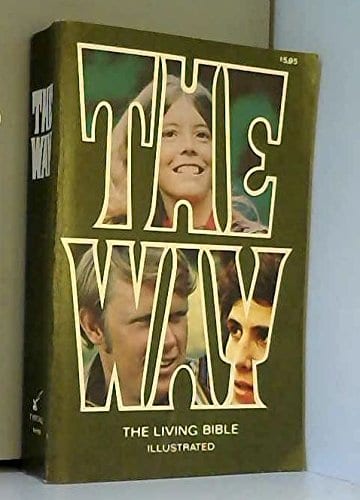
I can vividly remember sitting in the pews with my parents and looking through that bible before I could read much of it. I liked it because as I recall, unlike any bibles I’d ever seen, it was full of photographs–modern photographs of young people doing modern things. Some of those young people might have been accurately described as hippies. I often wonder if some of the folks sitting around us in churcd didn’t raise an eyebrow of suspician at my dad’s less than traditional choice of bible.
By this time, some of the hippie culture had found its way into our town and even into our little conservative church. Sometimes a young person with long, stringy hair would come in to a church service, looking like they were a couple days late for a shower, wearing anti-war paraphernalia–peace signs, POW bracelets, protest buttons, etc. I can still remember how those moments felt in that sanctuary. It was as if the air was suddenly sucked out of the room. I could sense that people had one eye trained on the strange invader as if they were waiting on them to do something “freaky.” If a little kid like me could sense those burning eyes, imagine how uncomfortable the young people being stared at felt.
The truth is that there were a lot of young people who had become completely disillusioned with our goverernment and with a war that should have never happened. They were tired of being lied to and used like pawns in someone else’s chess game. They were sick of the establishment and what it had become and they were feeling drawn to the message of Jesus.
Jesus was becoming hip among the hippies. They related to Jesus in a way that most Right Wing Christians couldn’t. They were so into Jesus that they became labeled as “Jesus Freaks.” And just as this movement of young Christ-seekers began to gain steam, the Right Wing of the Church started ostracizing them. Right Wing Christians didn’t trust those hippies. After all, those “pinko commie kids” were trying to paint Jesus as some meek little peacenik pacifist. They didn’t really understand Jesus. They didn’t even seem interested in the Old Testament, or Paul, or any of those parts of the bible so crucial to the justification of war, intolerance, and bigotry. Those Jesus Freaks just didn’t hate the right people. They protested against their president and were anti-war. They supported socialistic wealth redistribution. They were accepting of homosexuals. They were accepting of women’s rights. They seemed content to live and let live. Where did they get off waltzing into churches and acting like they belonged there?
Thus, a large part of a generation of people were “evangelized to” and taugh that churches were less interested in Jesus’ message than blindly following a political ideology. Many of those former hippies likely never darkened the door of a church again, or they found “one of those false churches” to accept them.
Let’s jump ahead nearly 50 years from the early 70s to the year 2020. Tell me, please, what has changed?
I’ve written my Progressive Christian Manifesto, as simply as I can put it, in a song. For any Right Wing Christian who might listen to it, I’d like you to explain what about the song makes you uncomfortable? Which parts do you believe are un-Christ-like? I’d really love to hear from you.

